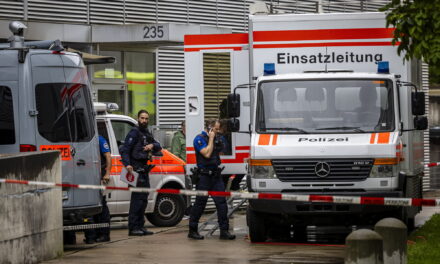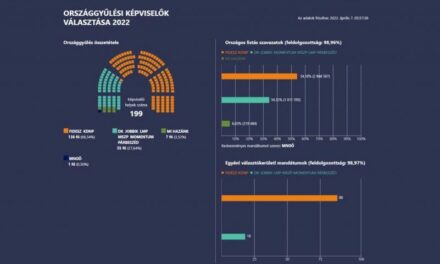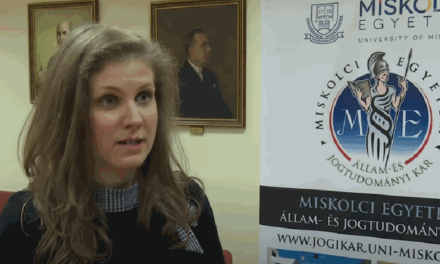The Hungarian Prime Minister published an opinion article in the columns of Newsweek, according to which the troops of the NATO member countries are already close to the Ukrainian front.
Shortly after meeting Vladimir Putin as the first European Union leader since the beginning of the war, Hungarian Prime Minister Viktor Orbán published an opinion piece in the columns of Newsweek. In his writing, he explains that the essence of NATO lies in the fact that it functions as a defense alliance, and if it deviates from this, it commits suicide.
NATO is approaching a watershed moment. It is worth remembering that the most successful military alliance in world history began as a peace project, and its future success depends on its ability to maintain peace. Today, however, instead of peace, the pursuit of war is on the agenda, instead of defense, attack. All of this is contrary to NATO's founding values. Hungary's historical experience is that such transformations never lead in the right direction. The task today should be to preserve the alliance as a peace project - writes Viktor Orbán in his opinion article published in Newsweek
We, Hungarians, are in a special situation when we have to make a statement about NATO. Our accession to NATO was the first time in several centuries that Hungary voluntarily joined a military alliance. The significance of our membership becomes understandable only in the light of Hungary's history
- writes the Hungarian Prime Minister.
According to Orbán's article, the history of Hungary in the 20th century is unfortunately also the history of war defeats. Our collective experience is of wars periodically fought in federal systems that we originally did not want to be a part of, and which were created with some goal of conquest - or at least some specifically militaristic goal. No matter how hard we tried to stay out of the two world wars, and no matter how fiercely we tried to warn the countries with which we were forced to ally, each time we suffered a defeat that almost wiped Hungary off the face of the earth.
Although the worst did not happen, our losses were still colossal. Because of these wars, Hungary had no influence over its future. After 1945, willy-nilly, we became part of the Soviet bloc and thus of the Warsaw Pact, the military alliance of the then Eastern bloc. The Hungarians protested with every ounce of their strength. We did everything we could to bring down the Warsaw Pact. In 1956, our revolution drove the first nail into the coffin of communism, and when the system finally seemed to fall, our prime minister at the time was the first leader in the former Eastern Bloc to declare (in Moscow!) that the Warsaw Pact must be dissolved. The rest is history. The military alliance forced upon us was dissolved almost immediately, and just a few days after the famous meeting in Moscow, the Hungarian foreign minister discussed the start of our NATO accession process in Brussels, writes Viktor Orbán.
We had a natural desire to join the West
According to Orbán, when the Hungarian nation joined NATO, it had not been a voluntary member of a military alliance for a long time - perhaps five hundred years. The importance of this circumstance cannot be overemphasized. In addition to our natural desire to break free from Soviet rule and join the West, a special factor made NATO attractive to us: we finally joined a military alliance that was not about war but about preserving peace, not about aggressive expansion but committed to protecting ourselves and each other. From a Hungarian point of view, we could not have wished for anything better.
According to him, we still hold this view and so far there have never been any circumstances that would have called it into question. Still, it is worth briefly addressing why we saw NATO as a guarantee of peace and defense 25 years ago. In the second half of the 20th century, Hungary was cut off from its natural civilizational environment - from the West - and even more directly from all of Europe. We would do well to recall the words of US President Harry S. Truman, who summed up the essence of the alliance with the following words when it was founded:
With this pact, we hope to create a shield against aggression and the fear of aggression—a bulwark that will enable us to address the real business of government and society, which is to create a fuller and happier life for all our citizens.
President Truman's words coincided with the aspiration of Hungarian history: peace. Reading them today, it becomes clear that the concept behind NATO was emphatically a military alliance for defense purposes. Its primary task was to create a geopolitical environment in which members of the alliance mutually protect each other. This was not only a safety guarantee, but also a competitive advantage. Mutual guarantees allow individual member countries to direct their resources to economic development rather than to countering military threats. But President Truman's speech had another important element: NATO not only provides protection and deterrence, but also reassures external actors.
Today, NATO is by far the most powerful military alliance in the world, both in terms of defense spending and military capabilities. Hungary punches above its weight in the development of defense capabilities, participation in missions and military development.
But when it comes to the future of NATO, we do not fully agree with the majority of the member countries.
Today, more and more voices are being heard within NATO in favor of the necessity – indeed the inevitability – of military confrontation with other geopolitical power centers of the world. This perception of inevitable confrontation works as a self-fulfilling prophecy. The more NATO leaders believe that conflict is inevitable, the greater their role in causing it will be, Orbán writes.
Confrontation as a self-fulfilling prophecy
According to Orbán, the self-fulfilling nature of this confrontational prophecy is becoming more and more evident today, since according to the news preparations have begun for a possible NATO operation in Ukraine, and even
according to high-level reports, the troops of NATO member countries are already near the Ukrainian front.
Fortunately, however, Hungary has concluded an important agreement with NATO, which recognizes our fundamental role in the alliance, and at the same time exempts us from direct support efforts in Ukraine, whether military or financial. As a peace-loving nation, we see NATO as a defensive alliance – which this agreement helps to ensure. Those who argue in favor of confrontation typically base their arguments on the military superiority of NATO and the Western world, writes the Hungarian Prime Minister.
According to the great historian Arnold Toynbee
the end of civilizations is caused by suicide, not murder
- quotes Viktor Orbán.
As the most powerful military alliance the world has ever existed, we do not have to fear defeat by an external enemy. An external enemy, if it has any sense, will not dare to launch an attack against any NATO member country. But we must be very careful that we ourselves reject the values that created our alliance. The purpose of establishing NATO was to ensure peace for stable economic, political and cultural development. NATO will fulfill its purpose if it wins peace, not war. If you choose conflict instead of cooperation, war instead of peace, you commit suicide, writes the Hungarian Prime Minister.
According to Orbán, of course, it is the task of each member country to bring new insights into the strategy in addition to its own world view and experience; but these worldviews are fueled by the different experiences of different countries. In this regard, the common experience of Western countries is victory - they have won the wars of the past centuries one after the other. When it comes to the question of war or peace, no wonder they are less cautious.
However, the Hungarian historical experience is that when a military alliance switches from defense to attack, from conflict avoidance to conflict seeking, it buys itself a ticket to defeat.
This happened to us, Hungarians, with the federal systems imposed on us in the 20th century. These federal systems favored conflict and war and failed miserably in war. In contrast, NATO existed from the beginning as a defensive alliance. Therefore, it is our task to preserve what it was created to be: a peace project.
Featured image: MTI/Szilárd Koszticsák













